THE WAR YEARS
As production demands increased during World War II, so too did the tension and conflict in Detroit. Although workers of all ethnic backgrounds moved to the city for factory jobs, Black workers had more difficulty finding them. Employment discrimination combined with a lack of adequate housing and public services further complicated already troubled race relations. Seismic events in the early 1940s, such as the struggle for occupancy of the Sojourner Truth Housing Project and the 1943 Race Riot, brought simmering resentment to the forefront and foreshadowed the violence of 1967.
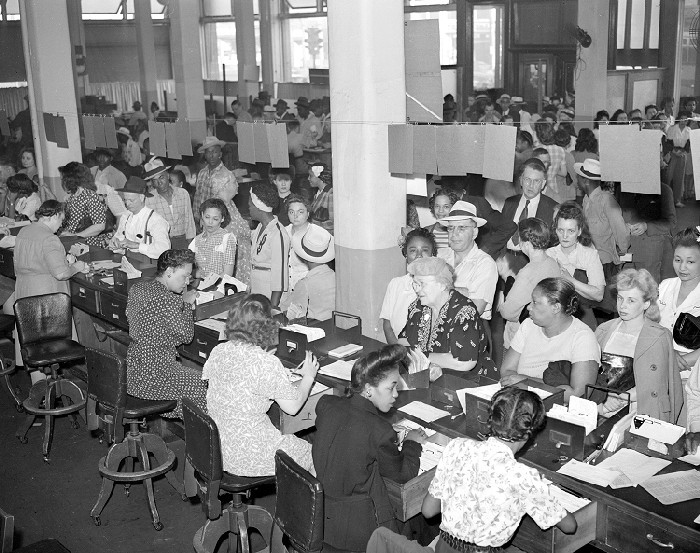
The conversion from military to civilian production began prior to the end of World War II in both Europe and the Pacific. Men and women representing varied demographics were looking for gainful employment. August 1945, From the Detroit News Photograph Collection.
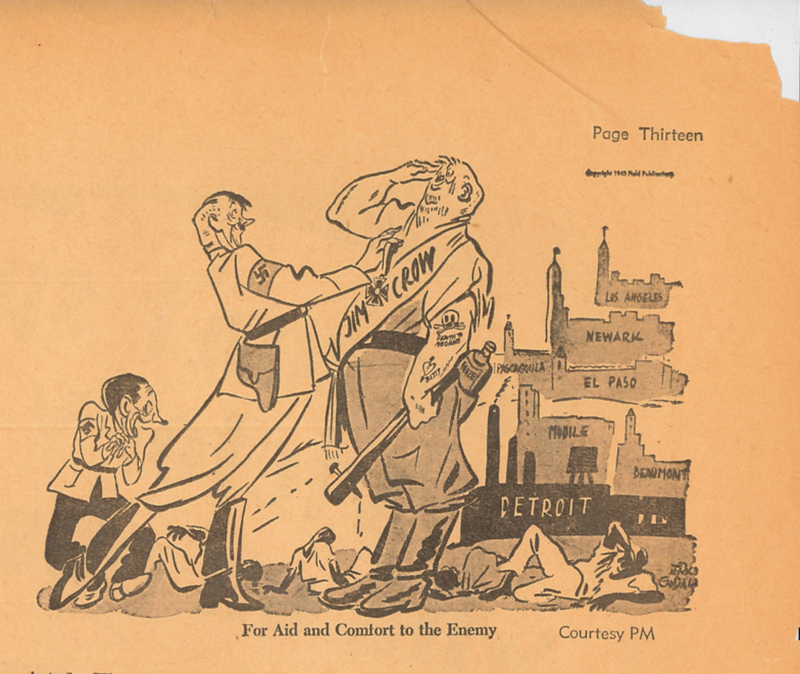
This political cartoon appeared in an issue of the UAW Education Department’s publication Ammunition. c. 1940s. Walter P. Reuther Vertical Files Collection, Box 128.
What does the cartoon suggest about the effects of domestic racism on World War II?
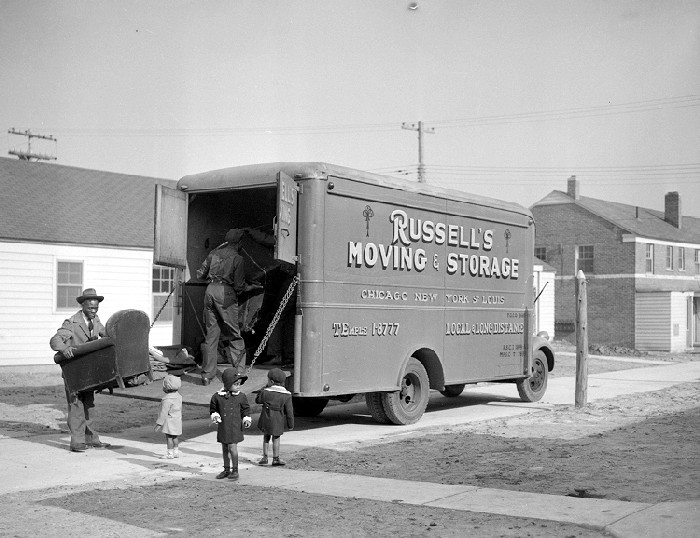
Three children look on as movers from Russell’s Moving and Storage unload furniture belonging to one of the first Black families to move into the Sojourner Truth Housing Project. 1942. From the Detroit News Photograph Collection.
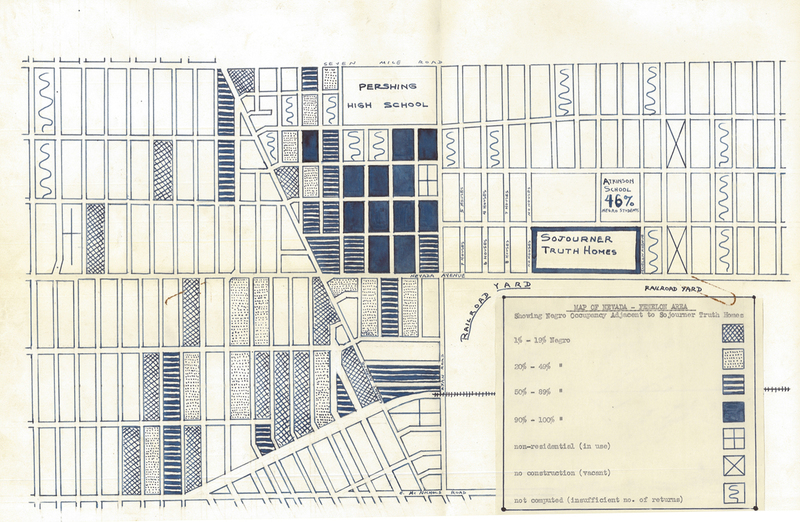
A map shows the racial makeup of neighborhoods adjacent to the Sojourner Truth Housing Project. No date. Civil Rights Congress of Michigan Records, Box 67.
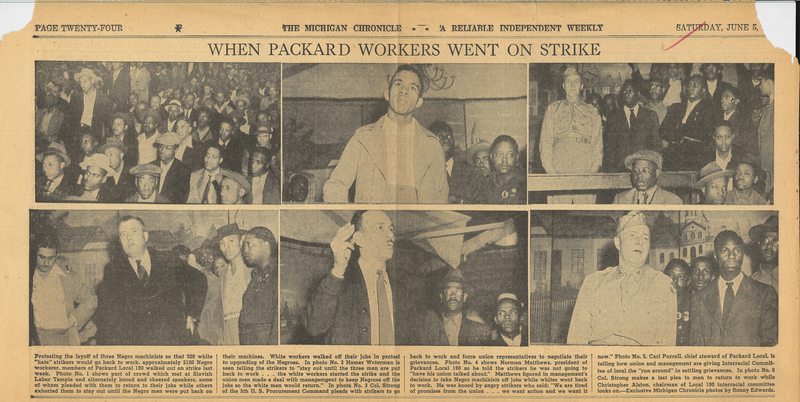
The Michigan Chronicle reports on the “Packard Hate Strike,” during which white workers walked off the job in protest of Black worker advancement. June 5, 1943. James Lindahl Papers, Box 1, Folder 6.
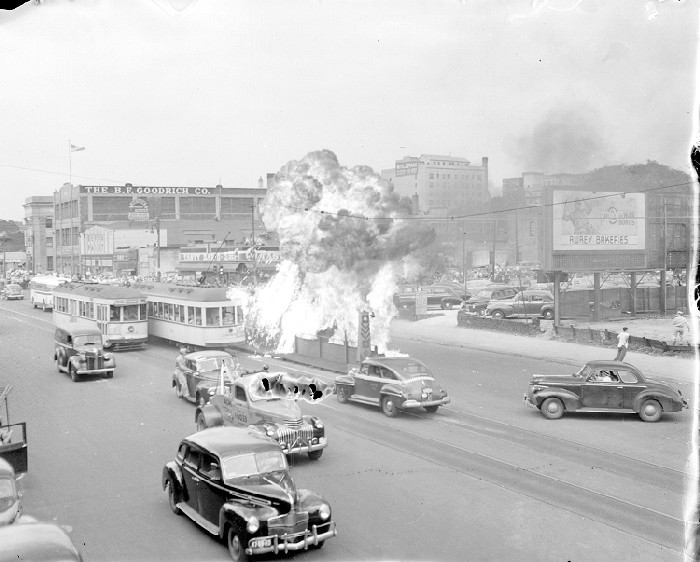
Firefighters attempt to extinguish a car set on fire on Woodward Avenue at Charlotte Street during the 1943 Race Riot in Detroit, Michigan. From the Detroit News Photograph Collection.
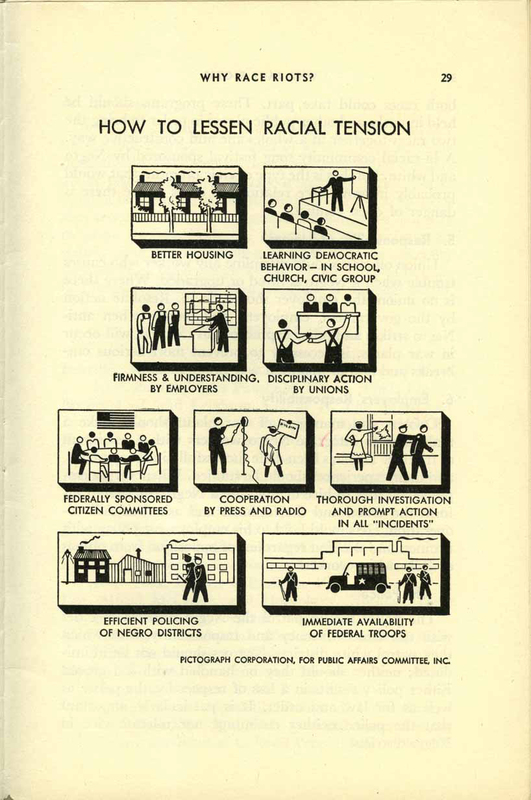
The NAACP published a pamphlet titled What Caused the Detroit Riot? An Analysis, written by Walter White and Thurgood Marshall. July 1943. Walter P. Reuther Library Vertical Files Collection, Box 128.

An undated newspaper clipping reports that UAW-CIO and community leaders issued a statement requesting, among other things, "That no action be taken by any government agency or officials to displace Negros from their homes in developing postwar projects until such time as other housing is available for these occupants." c. 1940s. Civil Rights Congress of Michigan Records, Box 66.